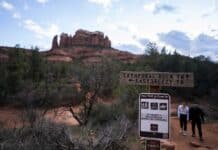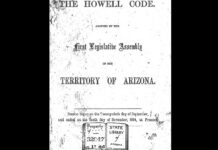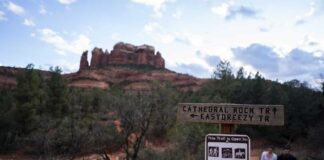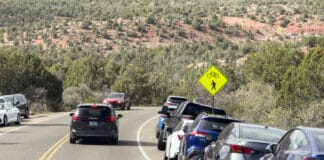Since the Sedona Chamber of Commerce & Tourism Bureau announced its plans to separate from the Sedona City Council when its contract expires at the end of the fiscal year in June, we haven’t heard that much from Sedona’s elected leaders.
Granted, it’s only been a few days, so the news is still being processed, but needless to say Sedona businesses and chamber members are very excited about the new direction the chamber wants to go to promote Sedona and destination marketing without constant micromanaging by council members.
Unyoked from the council, the chamber can aim to alter the type of tourists Sedona has received since COVID-19 from the quick, one-stop-and-turn-around Phoenix and Tucson daytrippers to the multiple-day, long-term tourists who are likely to spend thousands of dollars at hotels, resorts, restaurants, spas, retail shops, tour companies and other businesses for a dream vacation they’ve been planning for months. In other words, the kind of high-spending tourist the chamber always sought to attract before successive city councils stifled that effort.
Bed tax funds in Arizona are not simply free cash but must be used for a very specific purpose: Tourism promotion.
ARS §9-500.06.D defines “the promotion of tourism” to be:
- “Direct expenditures by the city or town to promote tourism, including but not limited to sporting events or cultural exhibits.”
- “Contracts between the city or town and nonprofit organizations or associations for the promotion of tourism by the nonprofit organization or association.”
- “Expenditures by the city or town to develop, improve or operate tourism-related attractions or facilities or to assist in the planning and promotion of such attractions and facilities.”
Sedona had a bed tax before 1990, and the funds from that portion of the tax can be used on police, roads, parks and other city programs, but the revenues from all post-1990 increases must be expended on the “promotion of tourism” according state statute.
There isn’t much the city can spend these bed tax dollars on. Sedona has no recreation centers, amusement parks, major cultural venues nor sports stadiums. We are landmark-adjacent, as nearly all of Sedona’s iconic sights are technically outside the Sedona city limits: Coffee Pot Rock, Bell Rock, Cathedral Rock, Devil’s Bridge, Oak Creek Canyon, Red Rock Crossing, Courthouse Butte, Cockscomb, Merry-Go-Round, Schnebly Hill Road, Midgley Bridge, Capital Butte, Palatki and Honanki.
The city could start building some tourism-drawing facilities or stretch the letter of the law to build new roads that attract tourists. Perhaps the city could create an Uptown bypass east if Oak Creek to enter Oak Creek Canyon if the road itself attracts tourists. Or the city could work with Coconino County and the Coconino National Forest to pave Schnebly Hill Road and turn it into a tourist-attracting scenic byway, but considering that destination marketing is a no-no, other tourism-related projects will be non-starters for the city, too.
The city has thus created a surplus of cash it won’t spend, a tax it won’t use and a business community frustrated that the council won’t help them as a recession looms. While the majority of council is composed of home-owning, presumably financially secure retirees as the economy tanks and inflation skyrockets, tens of thousands of Sedona and Verde Valley workers who rely on tourism to pay their rents are at the mercy of that council, which, in its own security, is oblivious or indifferent to their struggle.
For the last decade, hotels and resorts within Sedona city limits have paid a 0.5% bed tax they agreed to on the understanding that the city would spend the dollars they collect from those hotels on destination marketing. For the last two years, as council reneged on that agreement, the bed tax has become a penalty.
Hoteliers are still charging their customers in order to pay a tax that does not benefit them, putting these local hoteliers at a disadvantage compared to hotels and resorts just outside city limits and just down the road in the Village of Oak Creek.
When tourists plan to book a room in Sedona — in spite of City Council’s attempts to repel them — they see substantially and artificially higher prices in Sedona due to the bed tax and instead stay in the Village of Oak Creek or pick a vacation rental outside the city. The city loses out not only on the 0.5% but also on the entire 3% base bed tax — and the tourists arrive anyway. The city should at least try to benefit residents by collecting and utilizing the taxes they agreed to rather than harming our businesses and driving customers outside the city.
On Monday, April 10, the city of Sedona posted a new agenda for a special City Council meeting on Wednesday, April 12, to discuss the end of the contract with the chamber of commerce and how to spend bed tax funds. We trust the Sedona city attorney will advise the Sedona City Council to repeal the 0.5% tax. The city still collects a 3% base bed tax, about half of which goes into the city’s general fund because the tax was imposed before 1990 when the current state statute went into effect. It makes no sense for council to continue charging a tax that they won’t spend. Residents get nothing from it and workers are disadvantaged by it.



















